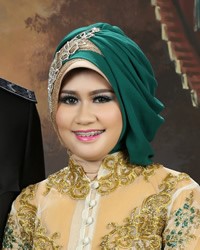Bugis in Indonesia

Photo Source:
Yudilasgan70 - Pixabay
|
Send Joshua Project a map of this people group.
|
| People Name: | Bugis |
| Country: | Indonesia |
| 10/40 Window: | Yes |
| Population: | 5,919,000 |
| World Population: | 6,091,000 |
| Primary Language: | Bugis |
| Primary Religion: | Islam |
| Christian Adherents: | 0.55 % |
| Evangelicals: | 0.06 % |
| Scripture: | Complete Bible |
| Ministry Resources: | Yes |
| Jesus Film: | Yes |
| Audio Recordings: | Yes |
| People Cluster: | Bugi-Makassar of Sulawesi |
| Affinity Bloc: | Malay Peoples |
| Progress Level: |
|
Introduction / History
The Bugis (sometimes called the Buginese) live in the province of South Sulawesi. The Bugis region is called Tellumponcoe and it consists of the regencies of Bone, Soppeng and Wajo (which is also known by the acronym "Bosowa".) There are Bugis who have settled throughout the regencies of Luwu, Sidenneng, Polam, Pinrang, Pare-pare, Barru, Pangkajene, Maros, Bulukumba and Sinjai.
The Bugis are dynamic, highly mobile people, considered to be the dominant people group in South Sulawesi. Many Bugis have left their home area to seek success and wealth and have moved to Sumbawa, Java, Papua and even Malaysia.
Their Ugi language has several dialects: Luwu, Wajo, Bira Selayar, Palaka, Sindenreng and Sawito. The Bugis language is part of a larger linguistic grouping called the Bugis which also includes the Campalagian and two Dayak people groups in Kalimantan Island (Taman and Embaloh).
What Are Their Lives Like?
Most Bugis make their living by hunting, fishing, farming, raising livestock, or making handicrafts. Typically, the Bugis who live in the mountain ranges make their livelihood by working the soil, while those living along the coastal regions work as fishermen. The Bugis traditional dress is called a Wajo Ponco, which is believed to have originated from Malaysia. This type of dress is used only for traditional ceremonies and dances. The Bugis believe very strongly that certain days are special, with good fortune for events and activities held on the first Wednesday and last Thursday of each month. Conversely, they consider Saturday to be a bad day, more likely to bring misfortune. In Bugis society, there are several social classes based on one's ancestors. These different levels include descendants of a king, nobles (La Patau), district administrators (Aru Lili) and various kinds of slaves. Two of the most important cultural values for the Bugis are called siri (personal honor) and siri-pesse (communal honor). A Bugis person must defend, maintain and build one's own siri. The effort to obtain and maintain siri varies according to the context. For example, in an economic context, siri means working hard and being faithful. If one's siri is offended, serious forms of revenge will be considered. Islam reinforced the traditional Bugis concept of siri in such a way that the typical Bugis person sees siri as the key to his or her self-identity as a Bugis Muslim. The Bugis line of descent is bilateral (traced through both parents). After marriage, the newlyweds may choose to live near either the husband's or the wife's family, although initially, they live at least briefly near the wife's family.
What Are Their Beliefs?
The Bugis are well known for their fervent adherence to Sunni Islam. However, many of them are still bound to their traditional system of animistic beliefs (panngaderreng). Traditional culture has a significant impact on the Bugis due to its religious values.
What Are Their Needs?
At present, the Bugis need financial investment and modernization in public shipping and the fishing industry. There is great potential in these sectors. South Sulawesi's potential in the mining and industrial sectors is also largely untapped due to a lack of expertise and investment.
Prayer Points
Pray for doors of opportunity to bless the Bugis people by helping them preserve their unique culture designed by their Creator.
Pray for spiritual hunger and a willingness to seek righteousness.
Pray for Bugis disciplers who will make more disciples.